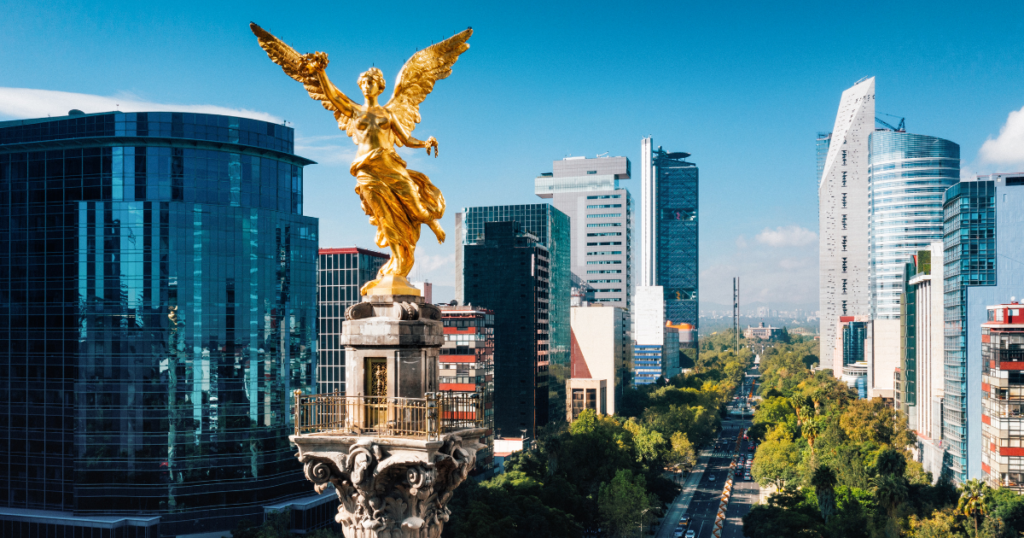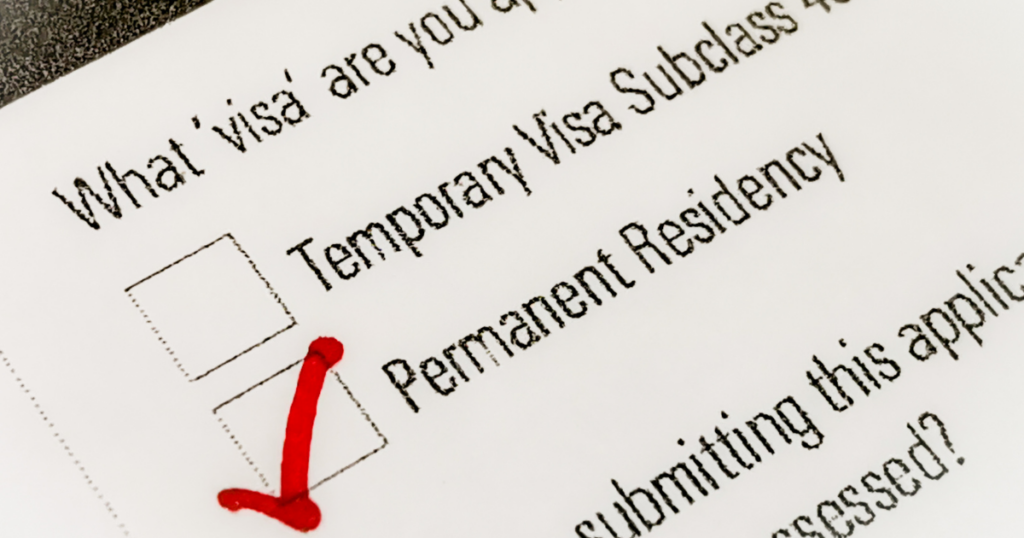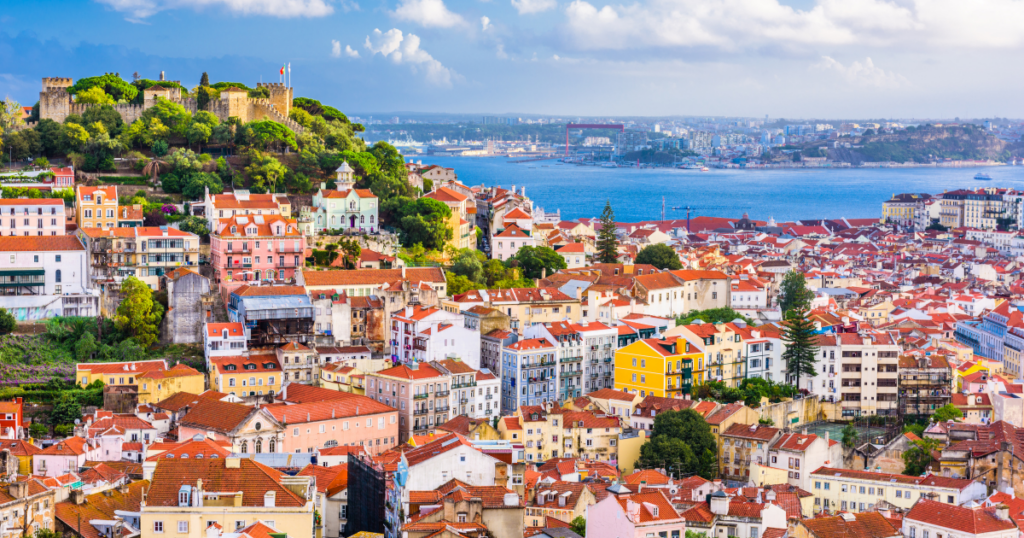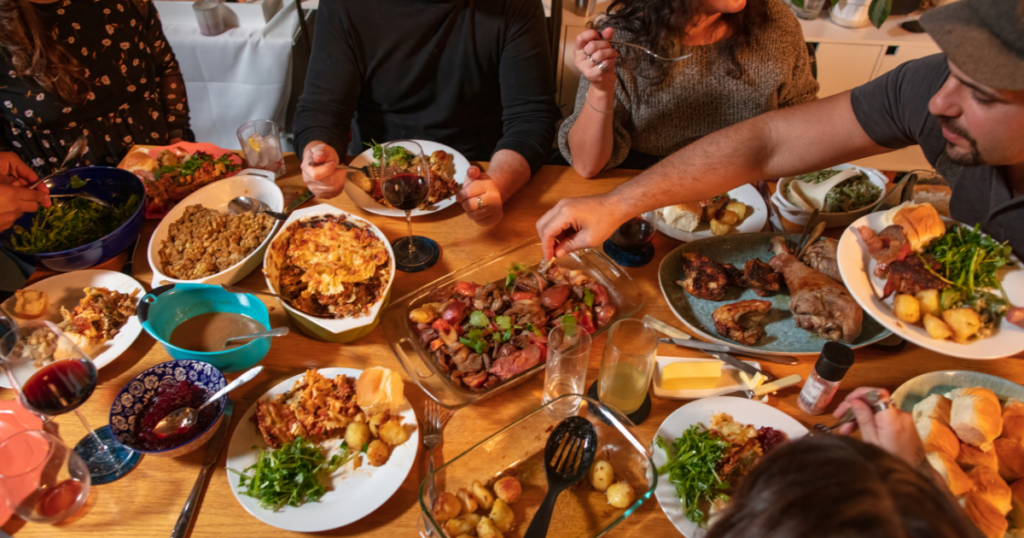So, you’ve decided to throw caution to the wind and embark on the adventure of a lifetime as an expat. Congratulations! 🎉 Moving to a new country can be like that first sip of coffee in the morning—exciting, a bit intense, and absolutely necessary. But before you start packing your bags and waving goodbye, there’s a little thing called „planning“ that needs to happen. Let’s dive into the nuts and bolts of preparing for your expat life, from choosing your destination to finding your new favorite coffee spot abroad.

Choosing Your New Home: Not Just Pinning a Map
Deciding where to set up your new life as an expat is like choosing a new favorite flavor of ice cream. It’s exciting, overwhelming, and, let’s be honest, you might want to taste a few samples first! 🌎🍦 Picking the perfect destination involves more than just pointing at a map and dreaming about exotic locales. Here’s how to thoughtfully select your new home base.
Climate Preferences: Sunny Days or Snowy Peaks?
First and foremost, consider the climate you thrive in. Are you a sunshine seeker who dreams of endless beach days, or do you prefer cozying up with a hot drink while watching snow fall? Climate can significantly impact your daily life and happiness.
Example: Embracing the Sun in Spain
If you’re a fan of warm weather and vibrant cultures, Spain might be calling your name. Cities like Barcelona and Seville offer sunny skies, stunning architecture, and a rich cultural tapestry. But remember, summers can get quite hot, so be ready for some serious siesta time!
Language Barriers: Hola, Bonjour, or Konnichiwa?
Language plays a crucial role in your expat experience. Moving to a country where you already speak the language, or are excited to learn it, can make your transition smoother and more enjoyable. Consider how comfortable you are with language immersion and whether you’re willing to take classes or use language apps.
Example: Navigating the Natives in Germany
Thinking of Germany? Cities like Berlin and Munich are expat-friendly with a good mix of English speakers and opportunities to learn German. Plus, the efficiency and public transport systems are something to write home about!
Cost of Living: Balancing the Budget
Next, dive into the cost of living. This includes everything from housing and groceries to transportation and healthcare. Your budget needs to match your new locale’s economic reality to ensure a comfortable lifestyle.
Example: Budgeting for Life in Thailand
For those seeking a balance between affordability and adventure, Thailand offers an attractive proposition. Cities like Chiang Mai provide a low cost of living, friendly locals, and a strong expat community. It’s an ideal spot if you want your dollars to stretch further while enjoying beautiful landscapes and rich culture.

Job Opportunities: Career Prospects Abroad
Unless you’re moving with a cushy remote job or a golden retirement plan, employment opportunities are a key factor. Research the job market in your field and see if your skills are in demand.
Example: Tech Boom in Singapore
Singapore is a hotbed for tech professionals, with a booming industry and high demand for skilled workers. Its clean streets, efficient public services, and dynamic lifestyle make it a top choice for expats seeking career growth.
Lifestyle Fit: City Buzz or Countryside Calm?
Consider the pace and style of life that suits you best. Do you thrive in bustling urban environments with endless entertainment options, or do you prefer a quieter, more relaxed setting with nature at your doorstep?
Example: Urban Vibes in Tokyo
If you’re drawn to the energy of city life, Tokyo offers an unparalleled experience. From its futuristic skyline to its traditional temples, the city is a blend of old and new. However, it’s one of the priciest cities in the world, so ensure your finances are up to the task!
Community and Support: Finding Your Tribe
Finally, think about the expat communities and support systems available. Moving abroad can be challenging, and having a network of fellow expats can provide valuable support and friendship.
Example: Expat Haven in Mexico City
Mexico City has a thriving expat community, with plenty of social groups and events to help you settle in. Its rich history, delicious cuisine, and vibrant culture make it a fascinating place to live.
Choosing your new home isn’t just about the destination; it’s about finding a place where you can build a happy, fulfilling life. Take your time, do your research, and maybe even plan a scouting trip to ensure your chosen locale feels just right. After all, this is your adventure—make it a great one! 🌏🏡

Visa Viability: Making It Official
Now that you’ve dreamt up your perfect new home, it’s time to deal with the less glamorous but absolutely crucial part of becoming an expat: getting your visa sorted. Think of it as your golden ticket to start your new adventure. Without it, your plans can quickly turn into a series of stressful flights and hotel stays. Here’s how to navigate the bureaucratic maze and secure your right to live in your chosen country.
Research Visa Types: Find Your Fit
Every country has its own set of visa options, and finding the one that fits your situation is the first step. Whether you’re moving for work, study, retirement, or just a change of scenery, there’s likely a visa category that suits your needs.
Example: Digital Nomad Visa in Portugal
For those who work remotely and want to enjoy the sunny coasts and rich culture of Portugal, the Digital Nomad Visa is a fantastic option. It allows remote workers to stay in Portugal for up to a year with the possibility of renewal, providing they meet income requirements and have proof of remote employment. Check out our detailed guide, „Digital Nomad Visas: A Guide to Working Remotely Around the World,“ for more information on similar opportunities.
Understand the Requirements: Documents and Deadlines
Visa applications can be intricate, often requiring a hefty stack of documents. Common requirements include proof of income, health insurance, a clean criminal record, and sometimes a local sponsor or job offer.
Example: Working Holiday Visa in Australia
Australia offers a Working Holiday Visa for young travelers (usually aged 18-30) that lets you work and travel in the country for up to a year. You’ll need to show proof of sufficient funds, typically around AUD 5,000, to support yourself initially, along with a return ticket or funds to purchase one.
Application Process: Patience is Key
The application process can vary significantly from country to country. Some may allow online submissions, while others might require in-person appointments at a consulate or embassy. Prepare for a waiting game, as processing times can range from a few weeks to several months.
Example: Study Visa in Canada
Applying for a study visa in Canada involves getting accepted into a designated learning institution (DLI) first. Once you have your acceptance letter, you’ll need to submit proof of financial support, a statement of purpose, and possibly undergo a medical exam. The process can take several months, so start early!

Overcoming Hurdles: Common Challenges and Solutions
Visa applications can sometimes hit snags—missing documents, misunderstood requirements, or changes in immigration policies. It’s important to stay informed and seek help when needed.
Example: Navigating Bureaucracy in Japan
Japan’s visa process can be quite detailed and strict. If you’re moving there for work, your employer will play a significant role in the application process. They must provide a Certificate of Eligibility (CoE), which you’ll need to convert to a visa. Engaging a local immigration lawyer or consultant can help navigate any complexities.
Long-Term Residency: Thinking Ahead
If you plan to stay in your new country for the long haul, look into pathways to permanent residency or citizenship. This often requires living in the country for a certain number of years, demonstrating financial stability, and integrating into society (like learning the local language).
Example: Becoming a Permanent Resident in Germany
Germany offers several routes to permanent residency, including the EU Blue Card for highly skilled workers. After 21-33 months of working in Germany and paying into the social security system, Blue Card holders can apply for permanent residency. Learning German and integrating into the community can expedite this process.
Staying Informed: Policies Can Change
Immigration laws and visa policies can change, sometimes with little notice. Keep abreast of any updates through official government websites or expat forums to ensure your plans remain on track.
Securing a visa is a vital step in your expat journey. It might not be the most thrilling part of your adventure, but getting it right means you can focus on the exciting parts—like exploring your new city, making friends, and fully immersing yourself in a new culture. So, gather those documents, fill out those forms, and get ready to make it official! 🌍🛂

Financial Foresight: Budgeting Beyond Borders
Embarking on your expat adventure is thrilling, but let’s talk money. 💸 Moving abroad isn’t just about dreaming under new skies; it’s also about making sure you can afford those dreams. Budgeting for life in a new country requires some serious financial foresight. Here’s how to get your finances in order before you pack your bags.
Research Cost of Living: Know Before You Go
Different destinations come with different price tags. A cup of coffee in Paris isn’t going to cost the same as one in Bali. Research the cost of living in your chosen destination to understand how far your money will stretch.
Example: Living in Tokyo, Japan
Tokyo is famous for its high cost of living. Rent, food, and entertainment can be pricey, especially in central areas. A small apartment might set you back ¥150,000 ($1,400) per month, while utilities and groceries add another hefty chunk. Compare this to a city like Bangkok, where you can find comfortable housing for much less and street food for a few dollars.
Create a Detailed Budget: Every Yen, Peso, and Euro Counts
Craft a comprehensive budget that covers all aspects of your new life abroad. This should include rent, utilities, groceries, transportation, healthcare, and a cushion for unexpected expenses.
Example: Monthly Budget for a Family in Mexico City
- Rent: $800 for a 2-bedroom apartment in a nice neighborhood.
- Utilities and Internet: $150.
- Groceries: $300.
- Transportation: $50 for public transport.
- Healthcare: $200 for private insurance.
- Miscellaneous: $200 for dining out, entertainment, and personal expenses. Total: $1,700 per month.
Income and Employment: Steady Cash Flow
If you’re not retired or independently wealthy, ensuring a steady income is crucial. Whether it’s securing a job before you move, freelancing, or working remotely, make sure you have a reliable income stream.
Example: Remote Working in Portugal
Portugal’s affordable cost of living combined with its Digital Nomad Visa makes it a prime spot for remote workers. If you earn in a stronger currency (like USD or EUR) but live in Portugal, you can enjoy a comfortable lifestyle. For more tips on working remotely, check out our article, „Digital Nomad Backpacking: Exploring the World While Working Remotely.“

Understand Currency Exchange and Banking: Smooth Financial Transitions
Getting your money from point A to point B can involve more than just withdrawing cash from an ATM. Look into the best ways to transfer money internationally, understand the local banking system, and consider opening a local bank account.
Example: Banking in Germany
In Germany, having a local bank account is almost a necessity for paying rent and bills. Banks like Deutsche Bank or online options like N26 offer services in English and are foreigner-friendly. Also, familiarize yourself with SEPA transfers, which make moving money within Europe easy and inexpensive.
Savings and Emergency Fund: Prepare for the Unexpected
Even the best-laid plans can go awry. Having a savings cushion for emergencies or unexpected expenses is vital. Aim to have at least three to six months’ worth of living expenses saved.
Example: Emergency Fund in Switzerland
Living in a high-cost country like Switzerland means your emergency fund needs to be robust. If your monthly expenses are CHF 4,000, aim to save at least CHF 12,000 to CHF 24,000. This might seem daunting, but it’s a safety net that can keep you afloat during tough times.
Healthcare and Insurance: Protect Your Well-Being
Healthcare systems vary widely around the world. Ensure you understand the local healthcare system and have adequate health insurance that covers you comprehensively.
Example: Health Insurance in the United Kingdom
In the UK, expats have access to the NHS, but having private health insurance can reduce wait times and improve access to services. Private insurance plans can range from £50 to £150 per month depending on the coverage.
Tax Implications: Don’t Forget Uncle Sam
Taxes can get complicated when you’re earning and living abroad. Understand your tax obligations both in your home country and your new residence. Consulting with a tax professional who specializes in expat taxes can save you from potential headaches and financial penalties.
Example: US Citizens Living Abroad
US citizens are required to file taxes on their worldwide income regardless of where they live. However, tools like the Foreign Earned Income Exclusion (FEIE) can reduce taxable income. Staying compliant with both US and local tax laws is crucial.
By planning your finances carefully, you’ll set yourself up for a successful and stress-free expat experience. Remember, budgeting beyond borders isn’t just about managing money; it’s about ensuring that you can fully enjoy the adventure without financial worries. So, start crunching those numbers, and get ready for your new life abroad! 🌍💼

Cultural Considerations: When in Rome…
Moving to a new country is like stepping into a whole new world—a world with its own unique customs, traditions, and social norms. Embracing and respecting these cultural differences can make your expat experience not only smoother but also richer and more rewarding. Here’s how to navigate the cultural landscapes of your new home and make the most of your international adventure. 🌍🎉
Learning the Language: Speak the Lingo
One of the most effective ways to immerse yourself in a new culture is by learning the local language. Even if you’re moving to a country where English is widely spoken, making an effort to learn the basics can go a long way in showing respect and building connections.
Example: Mastering Mandarin in China
Moving to China? Learning Mandarin can be a game-changer. Not only does it help with daily interactions—like ordering food or asking for directions—but it also allows you to delve deeper into the local culture. Plus, you’ll impress the locals with your effort and willingness to embrace their language.
Embracing Social Etiquette: Do as the Locals Do
Every culture has its own set of social norms and etiquette. From table manners to greeting customs, understanding and adhering to these norms can prevent awkward situations and help you integrate more smoothly.
Example: Navigating Politeness in Japan
In Japan, politeness is paramount. Bowing is a common greeting, and knowing when and how deeply to bow can show respect. Additionally, removing your shoes before entering someone’s home or certain traditional establishments is expected. These small gestures reflect your respect for local customs and make a positive impression.
Adapting to Local Traditions: Celebrate and Participate
Participating in local festivals and traditions can be a fun and enriching way to experience your new home. Whether it’s a national holiday, a cultural festival, or a local custom, joining in can help you feel more connected to the community.
Example: Celebrating Holi in India
If you’re living in India, participating in Holi, the festival of colors, is a must. This vibrant celebration involves throwing colored powders, dancing, and enjoying festive foods. It’s a fantastic way to experience the joyous spirit of Indian culture and make new friends.

Understanding Work Culture: Professional Protocols
Work culture can vary greatly from one country to another. Understanding the professional norms and expectations in your new home can help you navigate your job more effectively and build better relationships with colleagues.
Example: Business Etiquette in Germany
In Germany, punctuality and efficiency are highly valued in the workplace. Meetings are expected to start on time, and being well-prepared is crucial. Germans appreciate direct communication, so being clear and concise in your interactions can help you succeed professionally.
Respecting Religious Practices: Show Sensitivity
Religious beliefs and practices are integral to many cultures around the world. Showing respect and understanding towards these practices is essential, whether it’s observing religious holidays, dress codes, or dietary restrictions.
Example: Observing Ramadan in the UAE
In the United Arab Emirates, Ramadan is a significant religious observance. During this month, Muslims fast from dawn to sunset. As an expat, it’s important to be respectful by not eating, drinking, or smoking in public during daylight hours. Participating in Iftar, the meal to break the fast, can also be a wonderful cultural experience.
Making Friends and Building Community: Finding Your Tribe
Building a social network in your new country is crucial for your mental and emotional well-being. Joining local clubs, attending community events, and participating in expat groups can help you form lasting friendships.
Example: Expat Communities in Thailand
Thailand has a thriving expat community, particularly in cities like Bangkok and Chiang Mai. Joining expat groups on social media, participating in local events, and exploring hobbies can help you meet like-minded individuals and build a supportive network.
Embracing Differences: An Open-Minded Approach
Finally, keep an open mind and be ready to embrace differences. Cultural misunderstandings can happen, but approaching them with curiosity and a willingness to learn can turn potential faux pas into valuable learning experiences.
Example: Adapting to New Norms in France
In France, dining is an art form. Meals are leisurely and meant to be enjoyed without rushing. Understanding this cultural nuance can enhance your dining experiences and help you appreciate the French way of life. Plus, it’s a great excuse to indulge in delicious French cuisine!
By understanding and respecting the cultural nuances of your new home, you’ll not only enrich your expat experience but also build deeper connections with the local community. So, when in Rome… do as the Romans do! Embrace the adventure with an open heart and a curious mind, and you’ll find your new home welcoming you with open arms. 🌍❤️

Social Scene: Building a New Network
Moving to a new country can be as exhilarating as it is daunting, especially when it comes to making friends and building a social network. 🌏🤝 Whether you’re an introvert who treasures quiet moments or an extrovert who thrives on social interactions, creating a support system in your new home is crucial for a fulfilling expat life. Here’s how to dive into the social scene and build your new network.
Tap into Expat Communities: Ready-Made Friends
Expat communities are a treasure trove of like-minded individuals who understand the ups and downs of living abroad. These groups can offer valuable advice, friendship, and a sense of belonging.
Example: Expat Meetups in Berlin
Berlin is a hub for international expats, with countless meetup groups and social events. From language exchange meetups to hobby clubs, you’ll find plenty of opportunities to connect with fellow expats. Platforms like Meetup.com or Internations.org are great starting points to find events and groups that match your interests.
Engage in Local Activities: Embrace the Culture
Participating in local activities is a fantastic way to immerse yourself in your new culture and meet locals. Whether it’s joining a sports club, taking a cooking class, or attending local festivals, these activities provide a natural setting for making connections.
Example: Joining a Sports Club in Sydney
Sydney’s outdoor lifestyle offers numerous opportunities to join sports clubs, whether it’s surfing, beach volleyball, or yoga in the park. These clubs often organize social events, making it easy to build friendships while staying active and healthy.
Learn the Language: Break the Ice
Language can be a significant barrier, but making an effort to learn the local language can open doors to new friendships and deepen your integration into the community. Even basic conversational skills can make a big difference.
Example: Language Classes in Barcelona
Barcelona offers a wealth of language schools where you can learn Spanish or Catalan. Language classes not only help you communicate more effectively but also connect you with other expats and locals who are keen to share their culture and practice their English.
Volunteer: Give Back and Connect
Volunteering is a rewarding way to contribute to your new community and meet people who share your passion for helping others. It’s a win-win: you give your time and skills, and in return, you build meaningful relationships.
Example: Volunteering in Cape Town
Cape Town has numerous volunteer opportunities, from wildlife conservation projects to community outreach programs. Volunteering with organizations like Habitat for Humanity or local animal shelters allows you to make a positive impact while connecting with others who have similar interests.

Utilize Social Media: Modern Networking
Social media platforms and online forums can be incredibly useful for making connections before and after your move. Join local expat groups on Facebook, follow community hashtags on Instagram, and participate in discussions on platforms like Reddit.
Example: Facebook Groups for Expats in Mexico City
Mexico City has active expat groups on Facebook where members share tips, organize meetups, and offer support. Joining these groups can help you get a feel for the city, ask questions, and even find potential friends before you arrive.
Attend Social Events: Step Out of Your Comfort Zone
It can be tempting to stay in your comfort zone, but attending social events is essential for building your network. Say yes to invitations, whether it’s a casual dinner, a local festival, or a networking event. You never know who you might meet!
Example: Networking Events in Dubai
Dubai hosts numerous networking events for professionals from various industries. Websites like Eventbrite and LinkedIn can help you find events tailored to your profession or interests, providing a platform to meet new people and grow your professional network.
Host Your Own Gatherings: Be the Connector
If you’re struggling to find events that interest you, why not host your own? Invite neighbors, colleagues, or new acquaintances to a casual get-together. It’s a great way to build friendships and show initiative in your new community.
Example: Potluck Dinner in Amsterdam
Organize a potluck dinner and invite your neighbors and colleagues. This relaxed setting allows everyone to share a bit of their culture through food and fosters a sense of community. Plus, it’s a delicious way to make new friends!
Be Patient and Persistent: Rome Wasn’t Built in a Day
Building a new social network takes time and effort. Be patient with yourself and others, and don’t get discouraged if it takes a while to find your tribe. Keep putting yourself out there, and eventually, you’ll build a supportive and fulfilling social circle.
By actively engaging in your new community and seeking out opportunities to connect, you’ll build a robust social network that enhances your expat experience. So get out there, say hello, and start making memories with new friends! 🌍🤗

Planning your expat life can seem like juggling flaming torches while blindfolded, but with the right preparation, you’ll be settling into your new home in no time. Remember, every expat journey begins with a single step—and a lot of paperwork.
For more insights into remote work visas and tips for digital nomads, check out our articles Digital Nomad Visas: A Guide to Working Remotely Around the World and Digital Nomad Backpacking: Exploring the World While Working Remotely for detailed guides and tips to enhance your planning.
Or follow us on Facebook, Pinterest and Instagram for more travel tips and inspiration.
Discover the world with confidence and ease using Lambus, your ultimate travel companion! Whether you’re navigating hidden hiking gems or planning an extended stay abroad, Lambus simplifies every step of your journey. Organize itineraries, manage expenses, and uncover local attractions effortlessly with its user-friendly interface. Let Lambus take the stress out of travel planning so you can focus on creating unforgettable memories and exploring new horizons. Travel smarter, explore further with Lambus!


